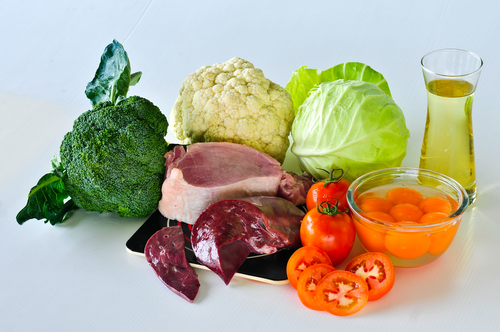
Photo: Shutterstock

Photo: Shutterstock
Vitamin K may also help in bone strength, especially among older people. The scientific consensus on this is still developing.
Vitamin K actually consists of a group of compounds, of which Vitamin K1 and K2 are the most important. There are many foods that can meet your daily requirement of vitamin K. Leafy greens are the best source of vitamin K1 in your diet. Other vegetable rich in vitamin K1 include Brussels sprouts, broccoli, cauliflower and cabbage. The vitamin is also found in cereals in smaller quantities.
Fish, liver, eggs and meat in general are sources of Vitamin K2 sources. Vitamin K2 is also made in the human body, though not by the body itself. It is produced by the bacteria that line the gastrointestinal tract. Therefore, prolonged antibiotics treatment could kill off the beneficial bacteria and lead to a Vitamin K deficiency.
Vitamin K is a fat soluble vitamin, along with Vitamins A, D and E. It is absorbed better when there is also some fat in the food you eat. Usually a person doesn’t need to take any additional steps or add fat in order to absorb Vitamin K, but someone who is following a completely fat-free diet may need to watch out for Vitamin K deficiency. The human body also stores fat soluble vitamins in fatty tissues in the liver and uses it when needed, so you don’t have to eat Vitamin K every day. However, taking too much Vitamin K (from supplements, for example) over time can cause a buildup and lead to problems.
A vitamin K deficiency presents itself when the vitamin cannot be adequately absorbed from the intestinal tract. Symptoms include:
- easy bruising (red or dark discoloration of the skin) from minor impact
- oozing of blood from the nose or gums
- excessive bleeding from cuts and scrapes
- heavy menstrual bleeding
- blood in stool or urine
If you notice any of the symptoms mentioned above, consult a doctor. Vitamin K deficiency is confirmed in a laboratory by taking a blood sample and testing how well it clots.
Those on certain medications may need to cut down on vitamin K-rich foods. For instance, patients on blood thinning drugs need to understand how foods containing vitamin K can interfere with how the medications work. Your vitamin intake is also dependent on various other factors including your age, gender and whether you are pregnant or breastfeeding, so it is important to ask your doctor to recommend an ideal quota according to your specific needs.
According to the US government’s Institute of Medicine, for those free of illness and medical complications an adequate intake for vitamin K is as follows:
| Age | |
|---|---|
| 0 – 6 months | 2.0 micrograms per day (mcg/day) |
| 7 – 12 months | 2.5 mcg/day |
| 1 – 3 years | 30 mcg/day |
| 4 – 8 years | 55 mcg/day |
| 9 – 13 years | 60 mcg/day |
| 14 – 18 years | 75 mcg/day |
| 19 and older | 90 mcg/day |
Share your thoughts, leave a comment below. Please like FamiLife’s page on Facebook so that you get all our articles and others may find us.
